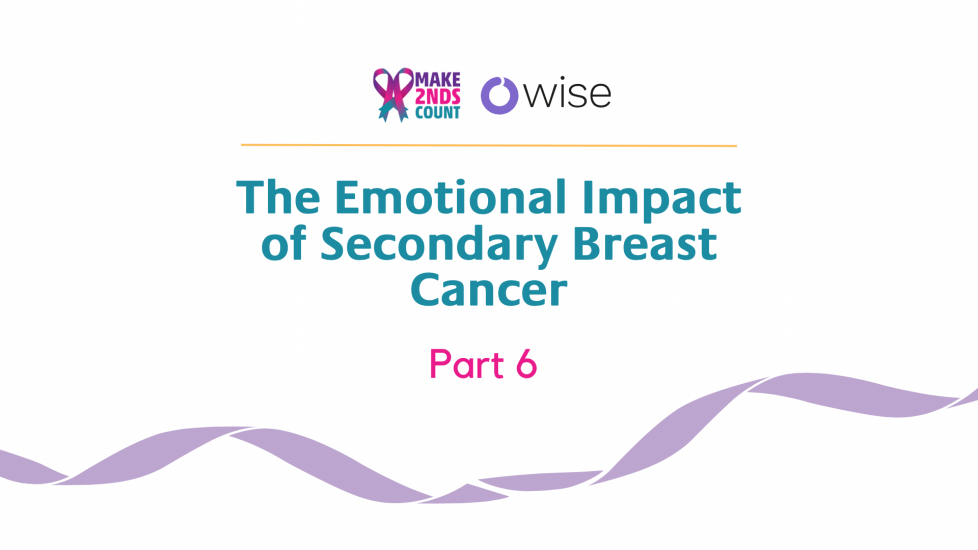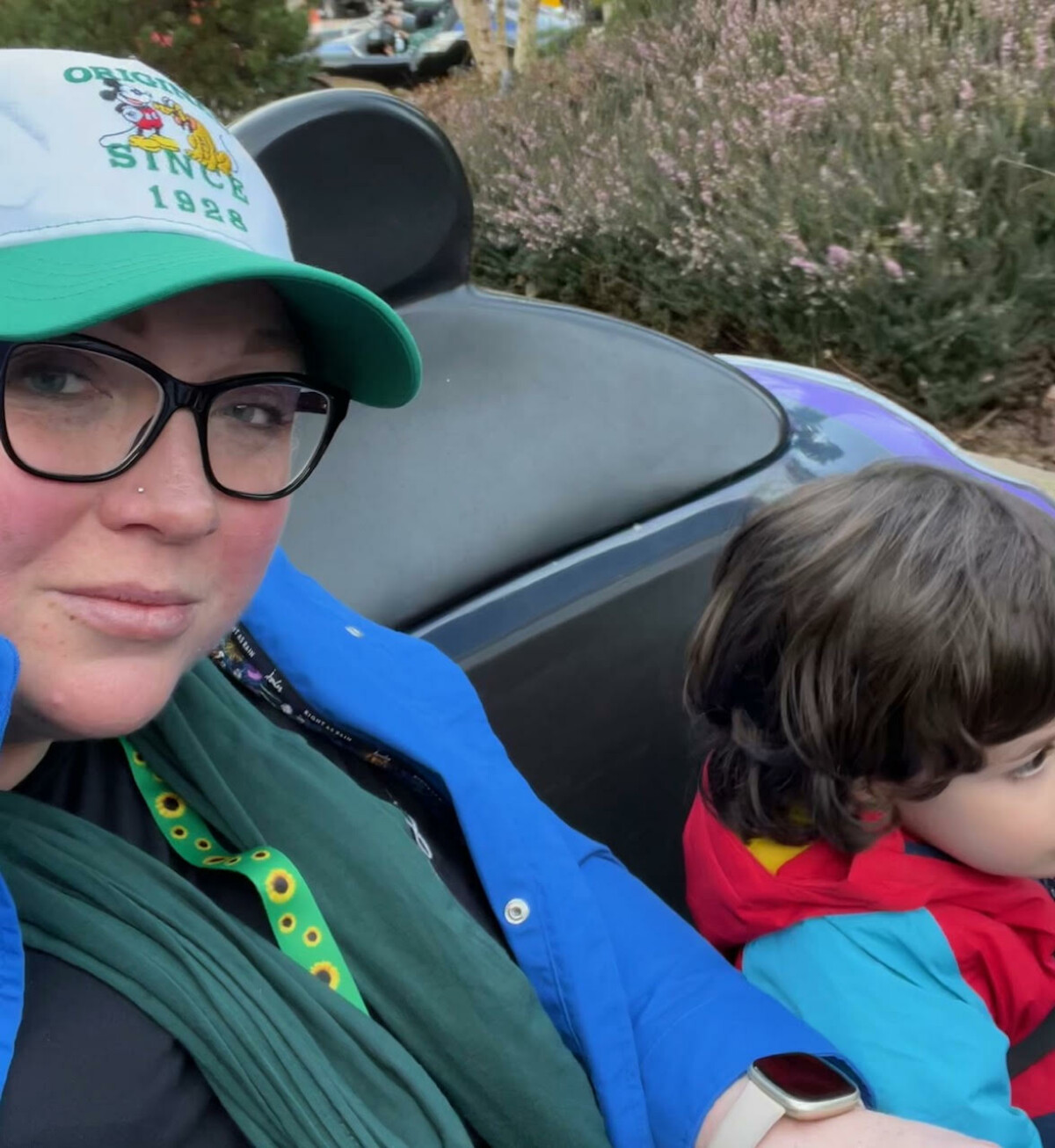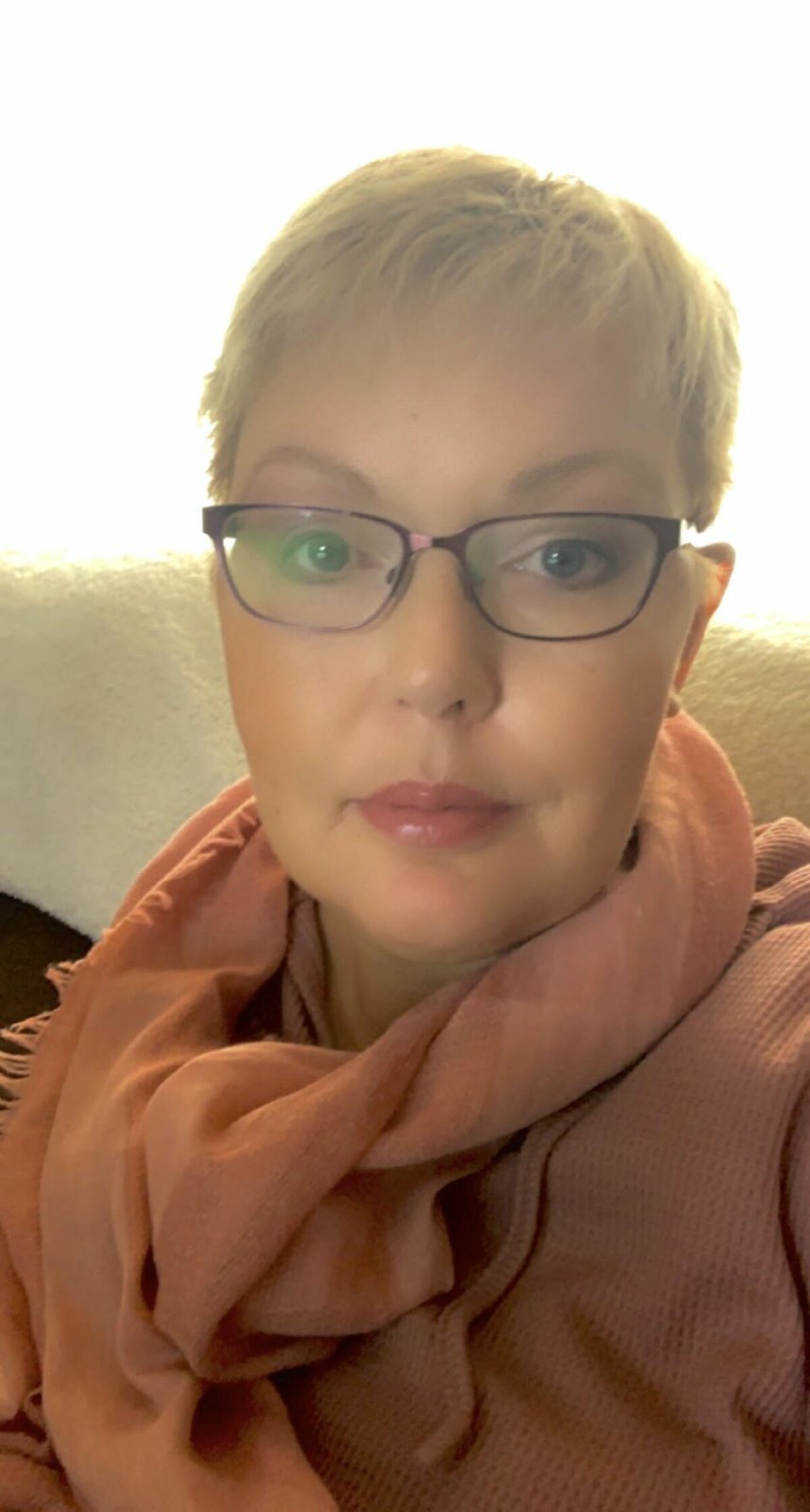29th July 2023 by Kathryn Boulahia & Mandy Smith Education

Living with secondary (metastatic) cancer is challenging. You will deal with a variety of emotions, such as fear, sadness, anxiety, anger, or hopelessness. Sometimes, people find it difficult to express how they feel to their loved ones. Your loved ones might also need help coping. Having a family member or friend with metastatic cancer is challenging, especially for people who help care for you.
Talking about fears and concerns is important, even when treatment is working well and you have hope.
We opened this subject up to our ‘2nds Together’ community to find out more about the ‘emotional impact of secondary breast cancer’ and are sharing stories from Kathryn & Mandy this week.
Thank you.
Questions:
How long have you been living with secondary breast cancer?
What is the emotional impact of this disease for you and your family?
Do you have any coping techniques or advice you’d like to share?

Kathryn Boulahia and her youngest, Elias, living it up at Disneyland Paris in February!
How long have you been living with secondary breast cancer?
I was diagnosed with secondary breast cancer at the end of August 2023. I was diagnosed straight to secondary after finding a lump whilst breastfeeding so I apparently had breast cancer for quite a while and was totally unaware. So I’ve been living with it for around 7 months.
What is the emotional impact of this disease for you and your family?
It has been an emotional rollercoaster for me. I have no symptoms so I’m not sure it still feels real. I haven’t had any surgery and I look and feel the same as I did before diagnosis. Except I know that everything has changed and that seems to hit me like a lightening bolt every now and then. Initially my main emotion was guilt: guilt that my parents had to deal with my diagnosis, guilt that my husband had to digest the news and now lives with the constant fear of losing me. I also feel incredibly guilty and just downright sad for my three kids. My youngest is only 2 and will never know having a Mummy without cancer and that breaks my heart. I am slowly getting to grips with my diagnosis and life seems to be ticking along as usual which is great but I do just keep getting these emotional outbursts over the most unpredictable things. Two old ladies having a coffee in Costa had me sobbing. Any milestone for the kids feels massive now. I am positive though, im a naturally positive person and I am trying to live the best life I can.
Do you have any coping techniques or advice you’d like to share?

Mandy Smith
How long have you been living with secondary breast cancer?
I was diagnosed with a De Novo diagnosis of secondary breast cancer 2 years ago.
What is the emotional impact of this disease for you and your family?
The emotional impact of living with SBC is huge and
exhausting with little to no respite. The emotions I have felt are like being on a rollercoaster, when I was first diagnosed I was in a constant heightened state of anxiety and worry with panic and fear. We were shocked and numb, This was followed by huge feelings of guilt at how my diagnosis has impacted on my children, husband, family and friends. Along side these difficult emotions I can also see strength, resilience, respect and gratitude.
I put pressure on myself as the ‘strong resilient‘ woman I am to be positive and independent and to get on with it to try and ‘protect’ those around me. But this is not realistic and not healthy, physically or mentally. The anxiety was high initially but now I have support and a better understanding the anxiety has greatly reduced. Unless I’m waiting for scan results, then the fear and anxiety creeps in again.
I struggle with my identity on who I am now. Things are different and I get angry at what I have lost since being diagnosed, such as mobility, health from side effects of treatment, my role at work, how I look, my social life has had to adapt as has my relationships.
People see me as the person with incurable cancer. They don’t behave the same, they don’t want to burden me with their troubles, they don’t know how to be around me or how to talk to me. They tread carefully in fear of saying the wrong thing or upsetting me. It’s like grief, it’s a loss of who you were, and a loss of a future you had thought you’d have.
I have to tell people I’m still me! I’m still everything I was but with some tweaks.
My husband buries his head in the sand. He refuses to talk about the future and the practical things that he will need to know. Whilst I find it really important that he’s got that information to make things easier when I’m not here.
My sons were devastated with my diagnosis. As a family we’ve had no experience of cancer so we’re uneducated and had very little knowledge. We had no idea you could go straight to secondary. Everything in the media tells you that breast cancer is curable and all the money raised is helping to make it curable. It’s all pink and fluffy. In my reality it’s dark and scary. My youngest was nearly 12 when I was diagnosed and he struggled. For 6 months following my diagnosis he would come into my room at night to check I was still breathing, he thought I was going to die imminently. It broke my heart. Luckily he has lots of friends who he has told and they support him brilliantly. My eldest was 18 and has not told anyone other than his college tutor, which concerns me. But I talk to him about it and I know he’s used social media as a way of linking with others going through similar.
I’ve been open and honest with all my family and friends about my diagnosis and the impacts because I believe by talking about it we can educate ourselves and others and spread awareness.
Do you have any coping techniques or advice you’d like to share?
Humour! As a family we have always used humour which works for us for some of struggles we have.
Being open and honest.
Talking about it, the good the bad and the ugly.
Reaching out and connecting with others has been instrumental in supporting me during my rollercoaster ride, M2C was suggested to me via another Fb group and instantly I felt the warmth from the ladies who ‘get it’. They are there for sharing the highs and the lows. The charity has so much to offer and I’m very grateful for them.
The Scottish retreat was offered to me 6 months after my diagnosis. This had a profound impact on me because I was able to see women further down their diagnosis path really living life to the full and having a good quality of life. Up till that point I was just too poorly from treatment to do anything and this depressed me. So the retreat gave me hope and inspiration that things would get better. It also gave me amazing friendships with incredible inspirational women.
The tea and chats are a life line for us to share knowledge and advice and tips but to also to form friendships and relationships and to feel less isolated. Being diagnosed with secondary breast cancer can often feel overwhelming and isolating.
I found counselling initially really helpful for me to process the huge jumble of emotions I was feeling.
Be kind to yourself receiving a diagnosis of secondary breast cancer is traumatic and live changing.
Accept that changes will happen and you may need to adjust and be flexible to meet your goals and expectations of your new future.
Accept help and support from others.
I surround myself with positive people who treat me as Mandy, I appreciate the small things and look for positives more than I did before.
Be grateful for what you do have